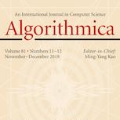The Matroid Secretary Conjecture is a notorious open problem in online optimization. It claims the existence of an $O(1)$-competitive algorithm for the Matroid Secretary Problem (MSP). Here, the elements of a weighted matroid appear one-by-one, revealing their weight at appearance, and the task is to select elements online with the goal to get an independent set of largest possible weight. $O(1)$-competitive MSP algorithms have so far only been obtained for restricted matroid classes and for MSP variations, including Random-Assignment MSP (RA-MSP), where an adversary fixes a number of weights equal to the ground set size of the matroid, which then get assigned randomly to the elements of the ground set. Unfortunately, these approaches heavily rely on knowing the full matroid upfront. This is an arguably undesirable requirement, and there are good reasons to believe that an approach towards resolving the MSP Conjecture should not rely on it. Thus, both Soto [SIAM Journal on Computing 2013] and Oveis Gharan & Vondrak [Algorithmica 2013] raised as an open question whether RA-MSP admits an $O(1)$-competitive algorithm even without knowing the matroid upfront. In this work, we answer this question affirmatively. Our result makes RA-MSP the first well-known MSP variant with an $O(1)$-competitive algorithm that does not need to know the underlying matroid upfront and without any restriction on the underlying matroid. Our approach is based on first approximately learning the rank-density curve of the matroid, which we then exploit algorithmically.
翻译:暂无翻译




